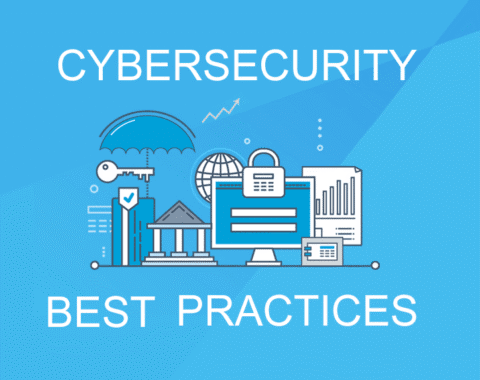In today’s digital landscape, small businesses are increasingly becoming targets for cybercriminals due to the valuable data they hold and often limited resources for robust security measures. One key area where businesses are most vulnerable is password security. With the majority of data breaches stemming from compromised passwords, implementing a password management solution has become critical for safeguarding sensitive business information and client data.
According to a 2023 report by Verizon’s Data Breach Investigations Report, 74% of breaches involve the human element, with a significant number caused by compromised or stolen credentials. This statistic highlights the essential need for businesses to adopt password management practices that ensure passwords are strong, unique, and securely stored. When passwords are easy to guess, reused, or stored in insecure ways (such as on sticky notes or in unencrypted spreadsheets), businesses open themselves up to a range of cyber threats, including unauthorized access, data theft, and potential financial losses.
The Role of Password Management in Mitigating Cyber Risks
Password management solutions allow businesses to centralize and secure password storage, streamline password updates, and enforce strong password policies. They also provide options for multi-factor authentication (MFA), adding an extra layer of security that is particularly valuable for high-risk accounts. By using MFA in conjunction with a password manager, businesses make it significantly more difficult for attackers to access accounts, even if passwords are compromised.
The Cybersecurity & Infrastructure Security Agency (CISA) emphasizes the importance of multi-factor authentication and strong password hygiene as foundational cybersecurity measures. They recommend password managers as an effective way for businesses to securely generate, store, and retrieve complex passwords, thus minimizing the risk of human error and password fatigue.
A password manager also ensures that employees do not resort to unsafe practices, such as writing passwords down or reusing them across multiple platforms. The National Institute of Standards and Technology (NIST) highlights this risk, noting that reusing passwords across accounts can lead to “credential stuffing” attacks, where attackers use stolen credentials from one platform to access another.
Increasing Efficiency and Reducing Operational Risks
Password management is not only a security measure but also an operational enhancement. Small businesses often have limited IT resources, which makes implementing efficient security solutions essential. A password management system minimizes the likelihood of account lockouts, reducing downtime and improving productivity by enabling employees to quickly retrieve and reset passwords.
Further, password managers with audit features provide business owners with insights into employee password habits, highlighting areas for improvement and ensuring compliance with internal policies and external regulations. According to a study by Cybersecurity Ventures, password-related breaches can cost businesses significantly in both lost time and resources. Implementing a password management solution can save valuable resources by minimizing these disruptions and reducing support requests related to password resets.
Choosing the Right Password Management Solution
When choosing a password management tool, it is essential to prioritize those that offer encryption, multi-factor authentication, and robust support for team-based collaboration. Solutions such as LastPass, Dashlane, or our own Southridge Password Manager powered by Keeper Security have demonstrated efficacy in securing sensitive data and integrating with existing IT infrastructure, making them suitable for small businesses looking to bolster their cybersecurity posture.
In a 2022 article published in Dark Reading, cybersecurity expert Dan Lohrmann emphasizes that “password management solutions are no longer optional” in today’s security landscape. He stresses the need for all businesses, especially small and medium-sized ones, to adopt solutions that address not only password security but also the broader concerns of cyber hygiene and regulatory compliance.
Conclusion: Protecting Your Business and Your Clients
For small businesses, protecting digital assets is about more than just safeguarding information; it is about maintaining client trust, ensuring regulatory compliance, and avoiding costly breaches. By implementing a password management solution, small businesses can achieve a level of security that was once reserved for larger enterprises, making it harder for attackers to exploit weak points and reducing the risk of costly cyber incidents. As cyber threats evolve, adopting proactive solutions like password managers is essential for safeguarding your business’s future.
Southridge Password Manager powered by Keeper Security is designed to help businesses strengthen their security posture by implementing advanced password protocols, storage, and retrieval mechanisms that are secure and user-friendly.
If you’re ready to take the next step in securing your business with an effective password management solution, contact us today to discuss how Southridge Technology can integrate this essential tool into your cybersecurity framework. Our team is available to help you make informed decisions, ensuring that your business is protected against evolving threats. Together, we can build a security stack that not only protects your data but also supports your long-term success.
Citations:
– Verizon, *Data Breach Investigations Report*, 2023.
– Cybersecurity & Infrastructure Security Agency (CISA), “Password Management,” 2023.
– National Institute of Standards and Technology (NIST), “Password Guidelines,” 2022.
– Lohrmann, D., “Why Every Business Needs a Password Management Solution,” *Dark Reading*, 2022.
– Cybersecurity Ventures, “The Financial Impact of Cybersecurity Breaches,” 2022.



